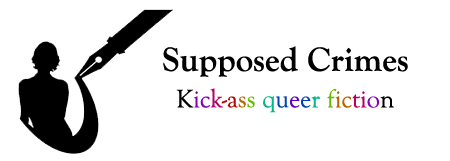
Last week, I offered tips for authors on working with their editors. This week, I'm addressing my fellow editors. I've really enjoyed working with my clients, and developing a mutually satisfying relationship is the key to success for both parties. It's not one-sided. All editors have had clients who drive them bananas, but editors aren't immune from being difficult to work with.
1. Choose your words carefully.
I've made the mistake of saying things more harshly than I meant. Fortunately, it was with clients who already trusted me and felt comfortable asking me to tone it down. A good general rule is to think about whether you'd want the same thing said to you. Maybe you would, and that's okay, but use empathy. You're disciplining someone else's baby here.
2. Meanness is inappropriate.
On a related note, sarcasm, rude comments in the margins, making fun of author mistakes, and other bullying tactics are unwelcome. If you're a proofreader, stick to that. It's not your job to point out things you personally dislike. If you're doing macro-level edits, even if the manuscript is horrible, there's no reason for you to be a jerk to the author.
3. Explain things where you can.
You don't have to go over every change to a comma; that's silly and a waste of time. But if you see patterns, make a note somewhere. You can also put in a note about misused words, like the definitions, instead of just correcting them. If there's something highly specific, you can add a link. Yes, it takes more time than just doing a red line through it, but it's worth the effort.
4. Be open to where it's your opinion vs. truly incorrect.
You might like (or dislike) certain phrasing, and you can absolutely suggest changes. Personally, I dislike "twitching" body parts, but I'm not fussy about "their eyes met" vs. "their gazes met." Other editors feel different. Both are a staple of a lot of romance/erotica, so I have to base recommendations on the overall story. Pick your battles. Is it vital that it be changed, or is it your own preference?
5. Have a conversation about style.
I recently worked with one client who disagreed with a current recommendation from the Chicago Manual of Style. We agreed that future books from that publishing company would not require that particular thing. It didn't change the meaning of the story or any individual sentences, and it's one I felt comfortable being flexible about. As long as it stays consistent, it's perfectly fine to make allowances.
6. Make sure you understand the subject matter.
If you're going to correct an author on their information, make sure you know what you're talking about. I had a great editor who was able to help me tweak a few things regarding drag racing (the cars, not the queens). But I also had an editor who insensitively corrected my medical knowledge on a condition I was intimately familiar with. The person used WebMD to cite random statistics at me, and they weren't even correct or applicable. Another editor tried to correct my knowledge of a job I'd held because they'd had the same job at a different location and it wasn't identical. Don't do this. Ask if you're not sure, or let it go.
7. Be generous with compliments.
Is the prose lovely? Did the author create a perfect word picture? Did you find yourself nodding as you related to a character or situation? Say so! When you include the good stuff alongside the corrections, you show interest and investment in the project. This creates trust between you and the client.
What suggestions might you add from either side of the keyboard? We'd love to know! Until then, happy reading and writing!
